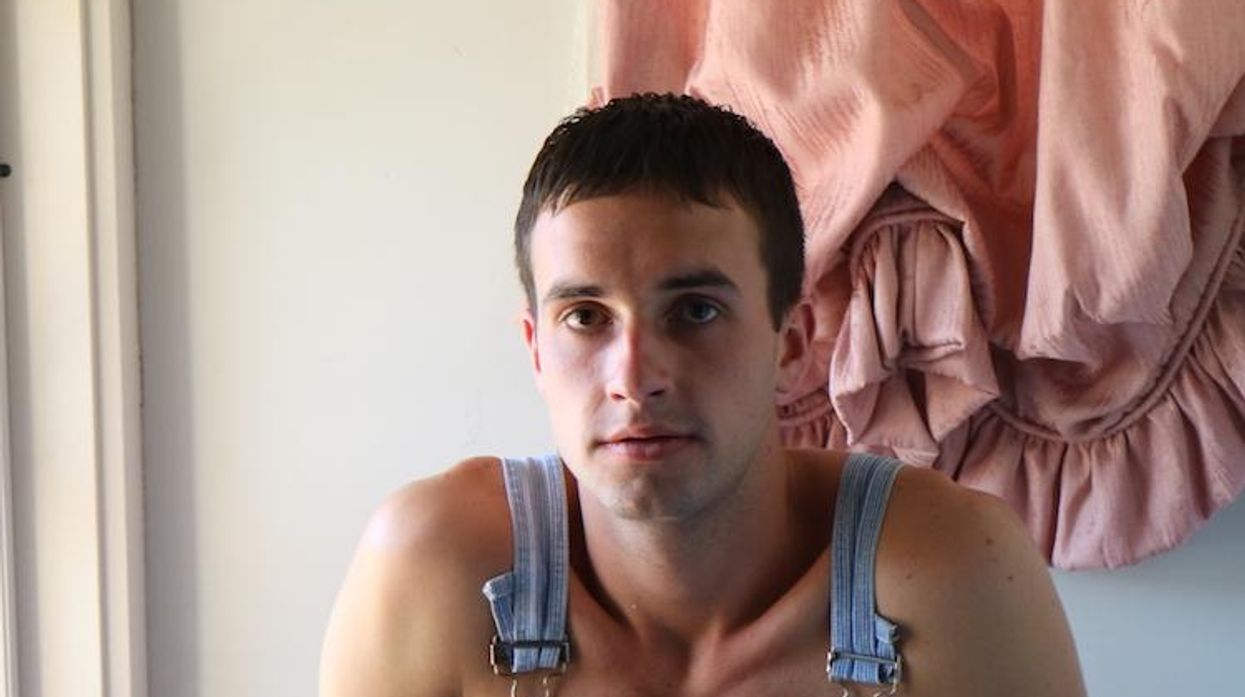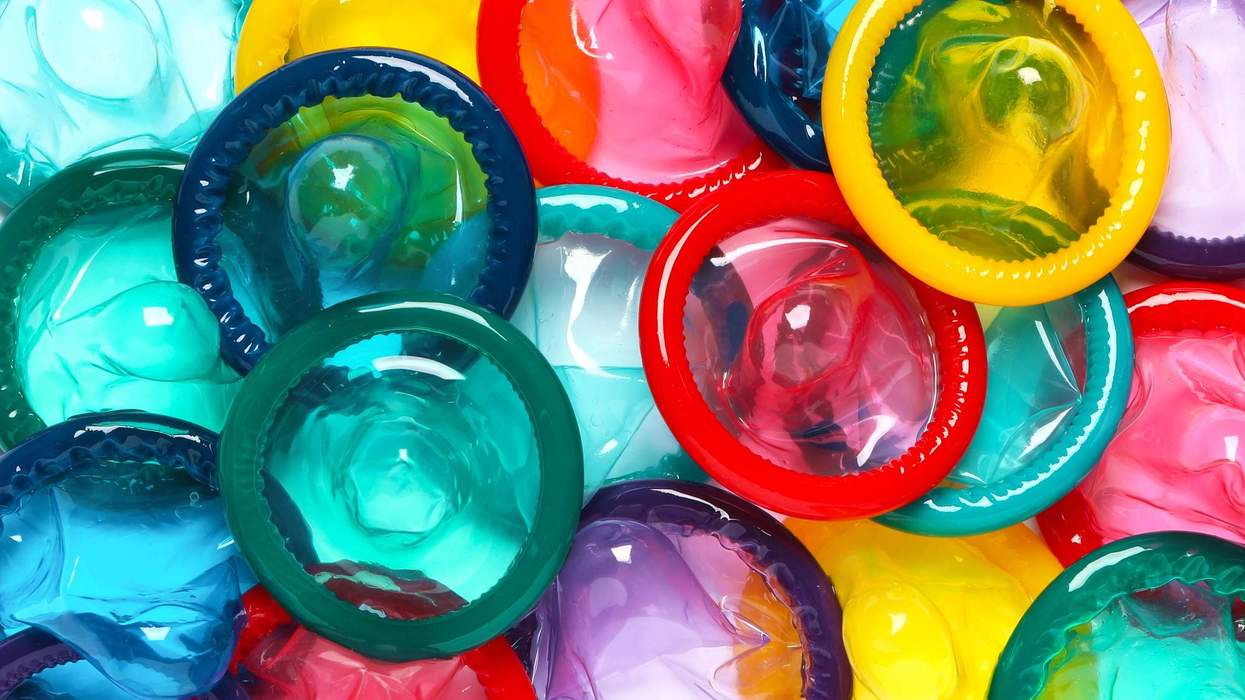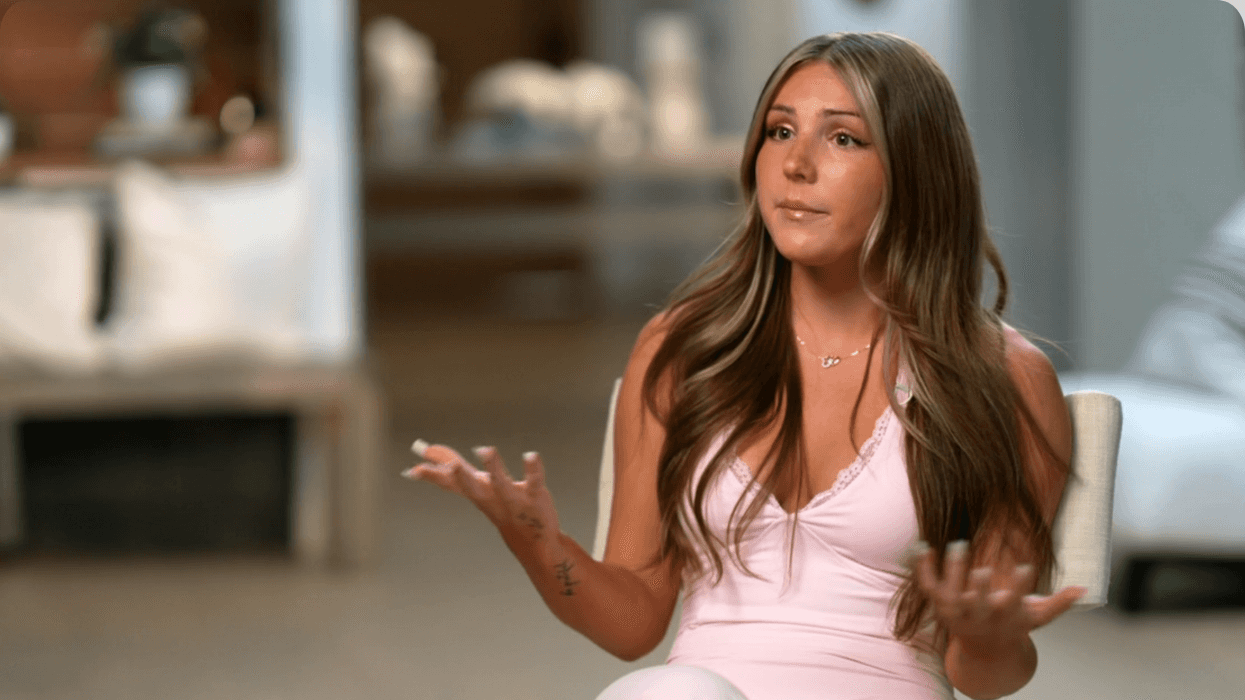Dating can be rough. Add mental illness to the mix and the prospect of the dating scene, or even the thought of meeting someone new, can seem like an unbearable task.
Related | New Year, New Me's: An Essay on Bipolar Disorder, Buddhism & Joy Behar
I remember, a couple years ago, hiding the fact that I'd started talking to a psychiatrist from the boy I was seeing at the time. Partly because I didn't know how to properly articulate my sadness yet, and partly because I didn't want him to think that I was crazy, or anything other than the laidback, "chill" guy he thought I was. There was another boy around that time as well. I remember always telling him I was just tired, and we'd always leave it at that.
Following this, as a singleton, I began taking medication. Zoloft leading to Ativan leading to Avanza leading to Prozac. These killed my sex drive and a want to meet anyone new. Medication wasn't something that I was ashamed of--after all, I see myself as a relatively open book. But I became ashamed of my medication whenever I found myself in dating scenarios, and learnt to dread the conversation I'd inevitably have to have if I ever met someone that I liked.
First dates have often been brutal. When I meet someone new, I find myself wanting to hide the fact that I've had long struggles with mental illness. I groom myself, trying not to be "too much" or "too crazy" for someone. It's like I'm trying to assume that this blase, unfazed identity that seems applicable to a first meeting.
Of course, I know I don't have to bring it up at all, but mental illness is a part of my life and silencing those thoughts would be denying my right to feel sadness. So I try to talk about it. But it's only until I've had a few drinks, and the conversation segues into something a bit more serious, that I sometimes muster up the courage to talk about my ongoing bouts of anxiety and depression, let alone the ambulance ride I needed last January.
For the average person, feelings of insecurity and nerves are common when meeting someone new but, for those surrounded by the black cloud, these insecurities become amplified and obsessed over. I reached out to a lot of my friends recently to talk about dating with mental illness. Surprisingly, it's a topic that's extremely prevalent within the close circle of people I know.
My friend Will, for example, was diagnosed with an eating disorder, stemming from chronic depression, anxiety and suicidal ideation, in his first year out of school. Despite initially feeling relief from telling his boyfriend at the time, the relationship began to crumble after his boyfriend failed to appreciate the real intricacies of his mental health and the anti-depressants he was taking. "The days where I felt fine were contrasted with days where I could not physically get out of bed or stop crying," he explained to me. "It's hard when they assume you have a choice or any control over your mental stability. If I were having a bad day, my boyfriend would act as if it had something to do with him which, to me, only compounded my feelings of self-loathing and shame."
Will acknowledged the temporary relief that came with being in love with someone else. "Sometimes when you don't love yourself, a deep love for another can mask those feelings and put a, sort of, 'band aid' over the hurt you are feeling. I realise now in hindsight that I was subconsciously throwing myself into something that would distract me from my ongoing hurt."
For many, dealing with personal demons can also mean removing oneself from relationships before they even have the potential to blossom. "After a few dates I usually start to put my wall up," Marcus, a 21-year old DJ from Melbourne, with BPD, bipolar and ADHD, told me. "I either cut them or myself out, blank their text messages, ignore their calls... that sort of stuff. The worst part is I do it to the guys I like the most. I guess it's my way of keeping myself safe; keeping my guard up so they can't hurt me."
This hesitancy in letting down one's safeguard often becomes amplified, especially following previously negative relationships. For another friend of mine, Sasha's mental health issues arose was she was 16, seeing psychologists on and off since then. Now 22 years old, she talked openly with me about one particularly bad relationship she was recently in where she was "prayed on by someone very manipulative" while in an extremely vulnerable place in her life. "That relationship was very emotionally abusive and has taken a long time to recover from. Following [that], I've definitely had extreme anxiety around letting people get close to me and trusting others."
She explained that, due to her self-esteem issues, she'd fallen into relationships with guys who hadn't treated her with respect. "Partially because I had limited respect for myself and didn't know where to draw boundaries and when to stick up for myself."
I can definitely relate. I've gotten myself into a string of toxic situations, talking to boys who I knew would never appreciate me, purely for that brief sense of self-worth and importance. Looking back, I realise I did this because I didn't appreciate my own self-worth, nor did I truly understand the love that I deserved. But when the voices inside your head tell you that you're not good enough, you begin to not only expect, but believe, that those who you date will think the same. Maybe, over the past couple years, I wasn't ready to receive any form of outside love at all.
It almost begins this contradictory cycle in which you block yourself from love, yet crave it at the same time. It's as if you're searching for someone to fill a void that only you, yourself, can inevitably fill. I asked Sasha what advice she had for someone with mental illness who was looking to get onto the dating scene. "Remember," she told me, "that regardless of where you're at with your mental health and self-care journey, you deserve love, you deserve support and you deserve acceptance."
Sasha's right. No matter what thoughts fill your head or what stage you are at in terms of self-love, and no matter the confidence or sadness you may be feeling, everyone with mental illness deserves to be reminded everyday that they are worthy to give and receive love.
Louis Hanson is a writer and activist. Check out his work here or on Instagram.






























